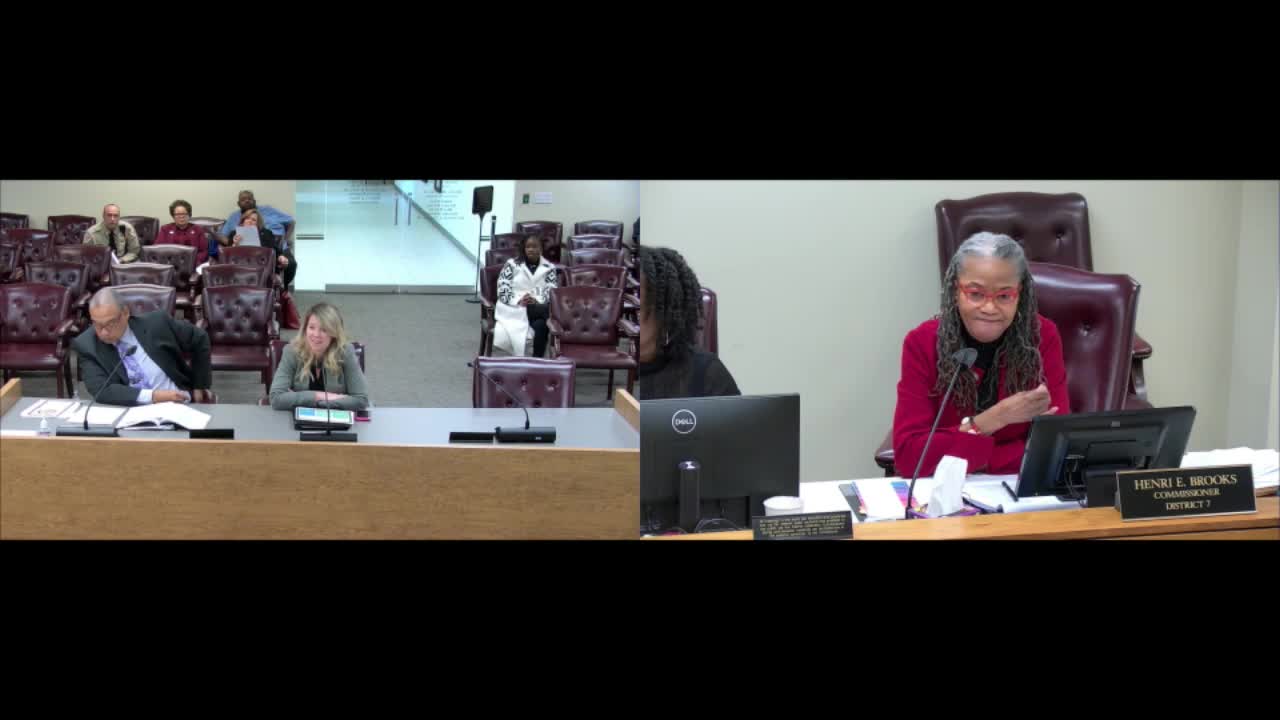General Government committee backs ordinance to limit solitary confinement; director outlines tiered, therapeutic approach
Get AI-powered insights, summaries, and transcripts
Subscribe
Summary
Shelby County committee recommended an ordinance to codify limits on restrictive housing (solitary confinement), adopt minimum out-of-cell time, and formalize a behavioral compliance review board and rehabilitative programming, following national best-practice guidance.
Shelby County’s General Government committee on Oct. 22 recommended an ordinance to restrict the use of solitary confinement and to create standards for humane treatment and reentry-focused programming.
Sponsor and presenters told commissioners the proposal codifies practices the county already implemented administratively and aims to make those protections permanent beyond the current administration. In committee, Ms. Green (presenting) cited the United Nations’ Mandela Rules — guidance that recommends limiting continuous solitary confinement to 15 days and providing at least two hours out-of-cell time — and described research linking prolonged isolation to serious mental-health harms. The sponsor said the county’s goal was to reduce restrictive‑housing use, impose strict limits on people with mental‑health conditions, and replace isolation with tiered programs that emphasize treatment and transition planning.
Anthony Alexander, director of corrections, described the county’s Behavioral Compliance Review Board (BCRB), a multi-disciplinary body that reviews disciplinary placements and establishes a tiered approach (red tier with up to 14 days out-of‑cell two hours daily only under strict conditions; a blue tier offering more out-of-cell time and programming). Alexander said the jail’s program has reduced intensive confinement to a small percentage of the population, expanded tablet access, virtual visitation, expanded phone access, programming (anger management, employment readiness, parenting) and veterinary-level humane practices in adult facilities. He also said the county discontinued ‘‘draconian’’ juvenile solitary practices after the new administration took over the juvenile facility and that the department is working to correct legacy problems.
Committee members spoke in favor and asked the administration to ensure public messaging distinguishes current practice from prior conditions. Chair and members added their names as sponsors in committee. The ordinance was recommended favorably and will go to the full commission for final consideration.
Why it matters: The proposal would enshrine limits on restrictive housing in county code, formalize a review board that evaluates placements and set minimum out-of-cell time and programming expectations for people in custody — changes the administration and corrections director said reduce harm, lower operating risks and support reentry.
